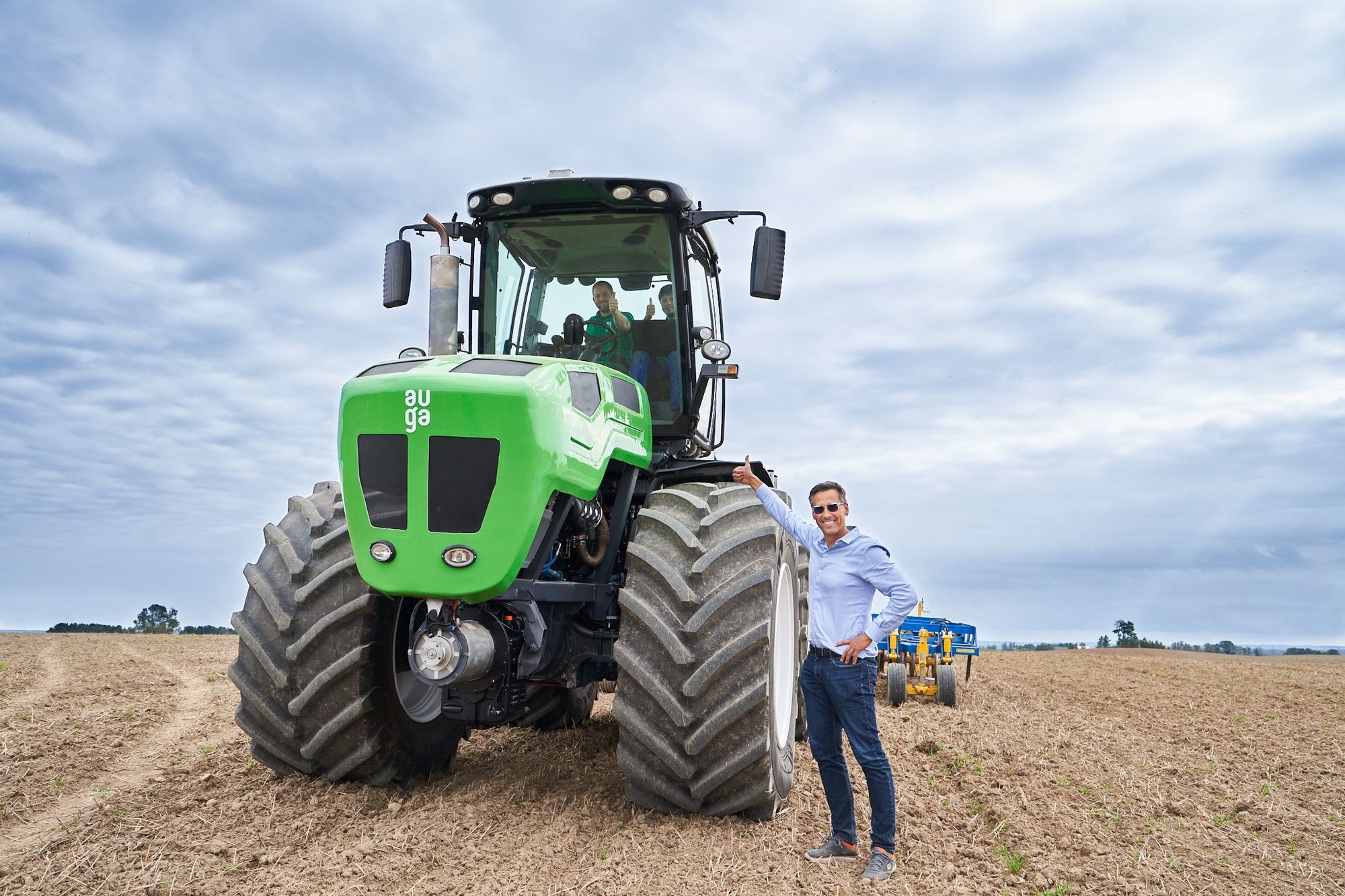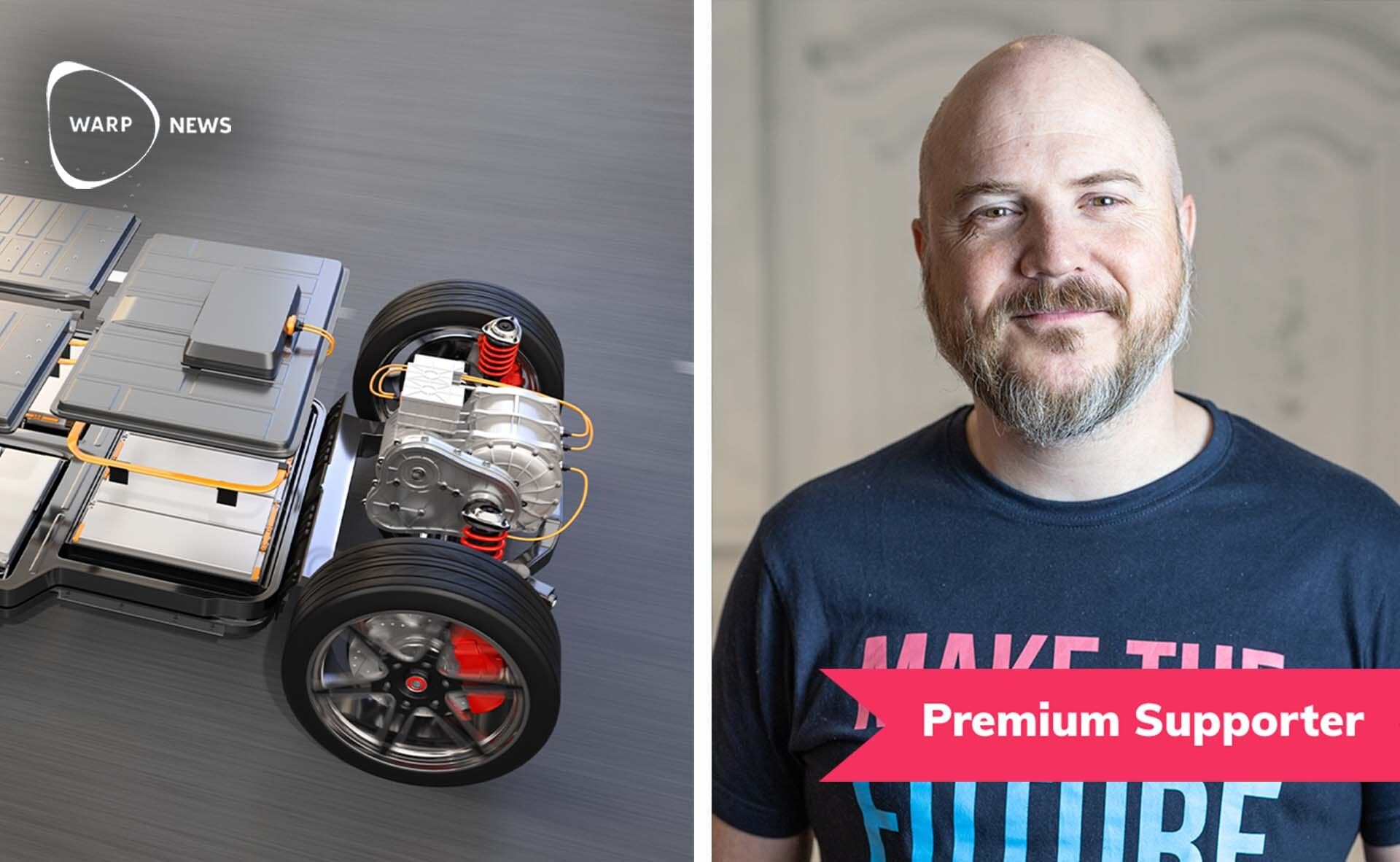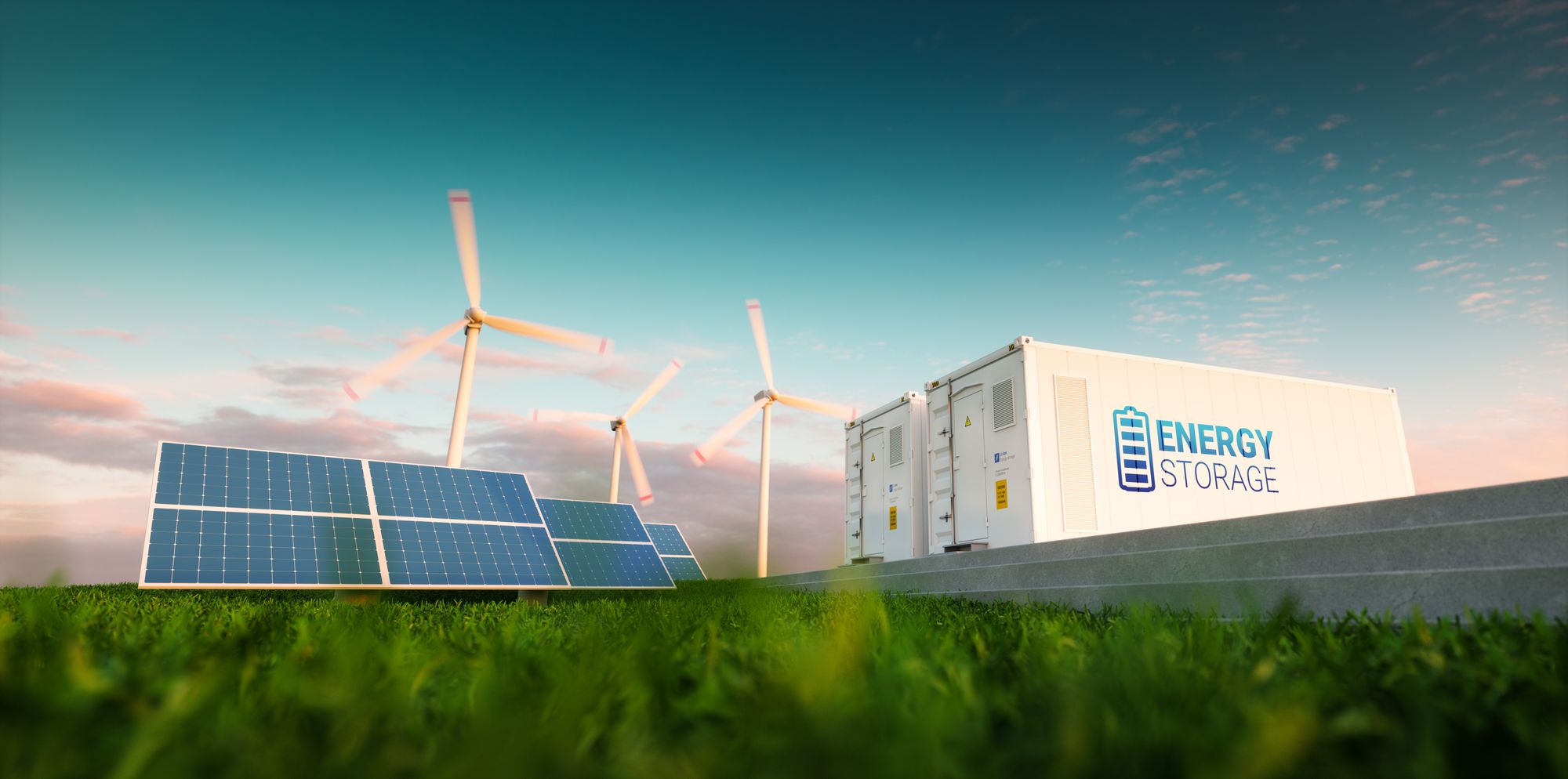
🚜 "Green" tractor provides more eco-friendly agriculture
A tractor powered by methane gas from manure will help farmers reduce their emissions.
Share this story!
A company in Lithuania has developed a tractor that, in its own way, runs on manure. It is a hybrid tractor that is powered by both methane gas and electric motors.
The methane gas can come from manure, thus methane which otherwise would just dissipate into the atmosphere, can now be useful. According to the manufacturer Auga, one of their tractors can reduce agricultural greenhouse gas emissions by 100 tonnes per year.
The tractor weighs only a third of a traditional tractor, but should still have the same power as a 400 horsepower diesel tractor according to Auga.
It takes a lot of methane gas to drive a tractor for a whole working day without refueling. But by driving the tractor with electric motors during less taxing operation, it's possible to drive the tractor for twelve hours straight. The methane engine then charges batteries when the tractor does not need as much power and the electric motors are then powered from these batteries.
Auga isn't actually a tractor manufacturer but an agricultural company. It farms 39,000 hectares and has 1,200 employees. The reason they developed their own tractor is that they wanted to be more environmentally friendly.
Three years ago, we calculated our emissions and we saw that 30 percent of them came from the fossil fuels we use on our farms. There were simply no ways to release less. That is why we are developing technologies that allow us to create new standards for sustainable agriculture by drastically reducing emissions throughout our value chain, says Kęstutis Juščius, CEO of Auga Group, in a press release.
But Auga has bigger ambitions than just reducing their own emissions which is why they will start selling the tractor to other farms as well.
We are not just developing this technology to reduce our own emissions and reach our goal of becoming emission neutral by 2030. Our goal is greater than that. We will make this tractor and other technologies that we develop available to farmers around the world, thus helping to solve the global problem of emissions in the agricultural sector, says Kęstutis Juščius.
By becoming a premium supporter, you help in the creation and sharing of fact-based optimistic news all over the world.


